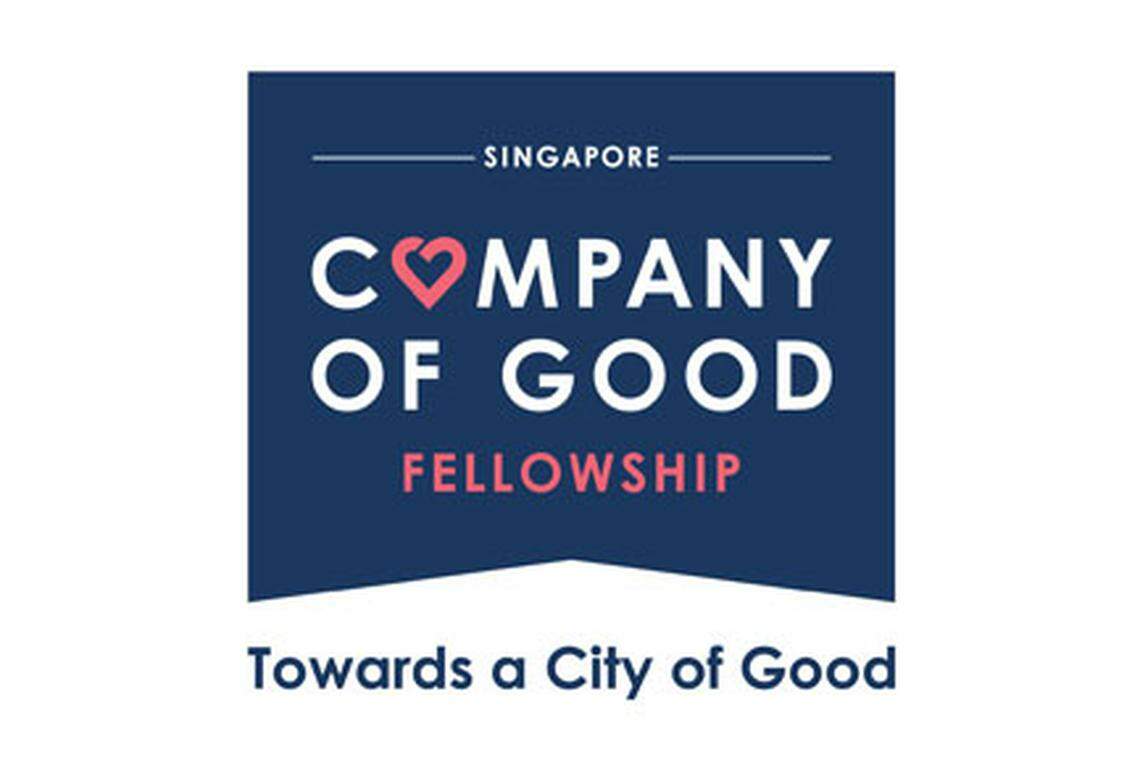Grooming leaders for a better tomorrow
The talent development programme run by the National Volunteer & Philanthropy Centre ostensibly teaches one how to run better corporate giving programmes. But its lessons go beyond that to groom leaders.

HIDEKATU Shigekawa, co-founder and director of finance and human resources at visual merchandising & events company, HAM Creations, was looking for ideas for his corporate social responsibility initiative, and hit on the idea of supporting a rehabilitation programme in a halfway house for its residents through pet therapy.
Specifically, the programme involves cats - giving the halfway house residents the opportunity to care for the animals ahead of their being placed in jobs.
Animal therapy employs the use of animals as a way to help people cope with and recover from health conditions, or to create an environment that encourages a person to open up during therapy sessions.
With Mr Shigekawa's support, the programme is making headway under the charge of Jasmine Koh and Jessica Cheong, peers whom he met when attending the Company of Good (COG) Fellowship, a talent development programme run by the National Volunteer & Philanthropy Centre (NVPC).
The two ladies contacted a cat shelter where fosterers are trained to look after stray felines for 2 -3 months in preparation for adoption. The idea is for the residents of the halfway house to become cat fosterers as well, as a way to not only help them develop responsibility for caring for others but also to create an environment for effective engagement with their families during family visits.
The cat shelter gets some cats taken off its hands, the cats get care and attention, and the halfway house residents have a responsibility to focus on ahead of their rejoining society.
A NEWSLETTER FOR YOU

ESG Insights
An exclusive weekly report on the latest environmental, social and governance issues.
Everyone (and every cat) wins.
"The project's goal is to facilitate interaction and communication between residents of the halfway house and their families. We hope this will happen through caring for the cats at the halfway house," said Mr Shigekawa, who was born in and grew up in Singapore.
It is through the COG Fellowship that Mr Shigekawa learnt about the value of strength in numbers - and that it is more impactful to work as a team.
Quek Shiyun, head of COG at NVPC, said: "Back then, we realised that many companies were still rather nascent in their journey of corporate giving, and were unsure of the different ways they could create corporate social impact, particularly in developing strategies or initiatives."
The Fellowship was thus created to help business leaders and professionals upskill, learn how to set up impact-based frameworks and build capability in their organisations to better create value for both business and society.
After the fourth intake this year, there will be 147 COG Fellows in total; they hail from 106 companies from different industries.
A 2017 survey by NVPC noted that 66 per cent of companies that engage in volunteering are motivated to start projects in corporate social responsibility (CSR) because it builds morale and loyalty, among other benefits.
"There is a greater need for companies to undergo a transformative shift - to not only maximise profit, but look at how they can holistically serve the communities in which they operate, in a way that's integrated as part of their business," she said.
"The COG Fellowship hence prepares corporates for the future of business, when corporate purpose and ESG issues are gaining prominence. The curriculum does not only develop know-how around doing good, but also develops leadership, systems thinking and design thinking skills..."
Management consulting firm Sequoia has been working with NVPC on the design and facilitation of the programme for more than five years.
A transformative experience
Druga Rajendran and Zafirah Mohamed, facilitators from Sequoia, said: "The Fellowship is designed to be a deeply transformative experience for the individuals at the personal and professional level. As trainers, we equip the fellows with the skills to engage their leaders and stakeholders, and help them to translate and apply their learning to give in more strategic and sustainable ways."
Donation figures on Giving.sg, a platform run by NVPC supporting more than 600 charities, jumped 21/2 times to a record S$102 million for the financial year that ended on March 31.
Hence, Ms Druga called this a "very clear and compelling case for corporate giving", and Ms Zafirah noted that many of the projects and initiatives have gone on to contribute to relief efforts for Covid-19 and also causes beyond that - including those for the elderly, women and children from vulnerable families, youth, the environment and even food security.
Ms Zafirah, referring to the considerations in crafting the syllabus and guiding the fellows, said that one assumption is that business performance and corporate giving are unrelated, in the sense that giving is an "extra, nice-to-have, a feel-good initiative" that fizzles out when the company goes into a downturn.
Ms Druga, noting that the choice of causes that a company supports is largely dependent on the founders' passion or interests, said: "However, through the programme, Fellows are challenged to consider corporate giving beyond philanthropy and traditional volunteering. They leave the programme with the awareness that there is more than one way to give; you can have a portfolio of giving initiatives - everything from traditional philanthropy to shared value-creation by collaborating."
Mr Shigekawa, for one, said that his approach has changed from that of working in silos for a project to taking an exploratory mindset, seeking collaborative opportunities with other parties to amplify the corporate giving.
"The COG Fellowship has provided me with the knowledge and tools to organise and structure a framework for our company's CSR initiatives. The connection to a group of like-minded individuals has also sparked ideas and conversations, which I feel is priceless."
There is a misconception that giving back is a cost centre for the company, but it doesn't have to be the case, said Melissa Chong, a consultant at Corporate Citizenship, a global strategy consulting firm specialising in sustainability and corporate responsibility engaged by NVPC since 2017 to be trainers for the COG programme.
She added: "For example, companies which give strategically are able to create win-win scenarios, such as enhancing employee engagement, developing employee skills, boosting their reputation and relationships with stakeholders and sometimes, even innovating new products and services. Our role is to help them consider more strategic forms of giving rather than just writing cheques."
Practical knowledge
Thomas Milburn, director at Corporate Citizenship, said that the reality of implementation will always be trickier than learning the theory. To combat this, the approach isn't to give participants a precise set of rules to follow, but rather to equip them with practical knowledge, models and examples that will help them to navigate the real-world challenges they will face.
Ms Chong said: "Discussing actual examples on how others have successfully, or unsuccessfully, developed impactful community programmes gets participants engaged with what works and what doesn't in reality. We encourage participants to share their experiences, which have prove to be an incredibly valuable part of the learning."
Mr Milburn said businesses are now no longer expected to focus only on their bottom line, but on a bigger question of "corporate purpose" - the question of the larger purpose the company serves in society. "This expectation is likely to stay, or even increase, after Covid," he added.
"Beyond giving back, this shift is also reflected in the way companies are expected to treat their workers, suppliers and customers in a more responsible manner.
"Covid-19 has also been described as a wakeup call for companies to pay attention to long-term risks in general, as we have seen the dire consequences of focusing only on the short-term. Climate change is, of course, one such example. So while current focus is inevitably on Covid-related issues, we believe this shift towards corporate purpose will endure beyond the pandemic to benefit a wider set of causes."
Mr Shigekawa, who has completed the training programme, agrees. He said that it is important for individuals to recognise that "giving back" is in fact beneficial to themselves because of the rewards from seeing the impact they have made - no effort is too small - and also from the opportunity to learn from others.
- Applications for the Company of Good Fellowship are now open. Apply at www.companyofgood.sg/fellowship

BT is now on Telegram!
For daily updates on weekdays and specially selected content for the weekend. Subscribe to t.me/BizTimes
Lifestyle
Former Zouk morphs into mod-Asian Jiak Kim House, serving laksa pasta and mushroom bak kut teh
Massimo Bottura lends star power to pizza and pasta at Torno Subito
Victor Liong pairs Aussie and Asian food with mixed results at Artyzen’s Quenino restaurant
If Jay Chou likes Ju Xing’s zi char, you might too
Mod-Sin cooking izakaya style at Focal
What the fish? Diving for flavour at Fysh – Aussie chef Josh Niland’s Singapore debut
